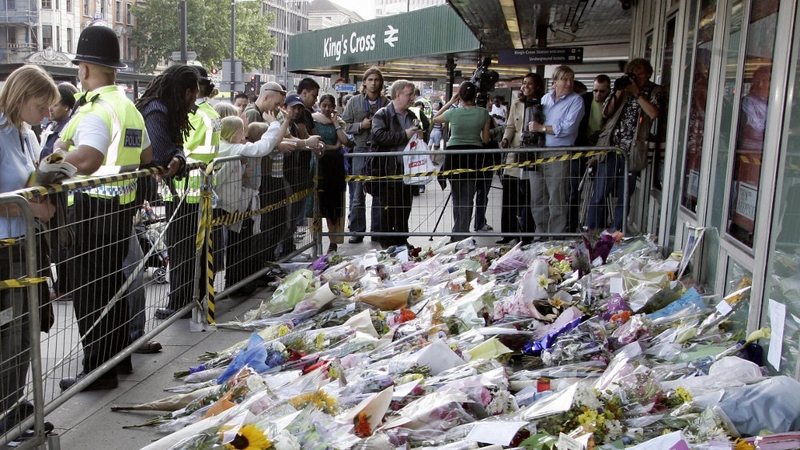A coroner has ruled that the 52 victims of the London suicide bombings six years ago were unlawfully killed.
The attacks on 7 July 2005 left 52 people dead, plus the four suicide bombers, after devices were detonated on three underground trains and a bus.
Lady Justice Hallett said each of the 52 victims would have died ‘whatever time the emergency services reached and rescued them’, a coroner ruled today.
She said the evidence ‘does not justify the conclusion that any failings of any organisation or individual caused or contributed to the deaths’.
The rush hour bombings of London's transport system were the worst single atrocity on British soil. Over 700 people were injured in the attacks.
MI5 was ordered today to review its procedures on showing photographs to informants after failings before the bombings.
The coroner expressed concerns about the Security Service's record-keeping.
Justice Hallett warned of the ‘possibly dire consequences of a flawed decision which cannot be properly supervised’.
She also voiced concerns about the limited resources available to the London Air Ambulance, which does not receive full public funding and relies on volunteer doctors.
The coroner noted that it was only by chance that the helicopter emergency medical service had 27 physicians and paramedics at its disposal on the day of the attacks - normally only one team would be available.
She said: 'I am concerned that London, a major global capital, host to the Olympics in 2012 and a prime terrorist target, should find itself dependent upon corporate funding and charitable donations, and upon professional volunteers giving up their limited free time in order to provide life-saving emergency medical care.'
She made a recommendation that the Department of Health, London mayor Boris Johnson and other relevant bodies should look at the London Air Ambulance's funding and capabilities.
Justice Hallett recommended reviews of the inter-agency training of frontline staff for dealing with major incidents; the way in which Transport for London is alerted to major incidents declared by the emergency services on the Tube and in turn how it informs other agencies about emergencies on the network.
She also recommended reviews of how a common rendezvous point for the emergency services is established at the scene of a major incident; how the emergency services confirm that the power in Tube tracks has been turned off and it is safe to go on to them; whether it is possible to carry first aid kits on London Underground trains, and whether the stretchers stored at Tube stations are suitable.
Relatives of the victims waited nearly six years for the inquest to give them answers about how their loved ones died and whether their deaths could have been prevented.
The inquest heard of the extraordinary bravery of the rescuers in descending into dark and smoke-filled Tube tunnels, aware that they could face further bombs or even nuclear contamination.
But their ability to help the injured and dying was restricted by serious problems including equipment shortages, delays in reaching the scenes of the attacks and radios that failed to work underground.
The hearings looked in detail at the bombings at Aldgate, Edgware Road and King's Cross Tube stations followed by the blast on a number 30 bus in Tavistock Square.
The bombings were carried out by Mohammed Sidique Khan, 30, Shehzad Tanweer, 22, Hasib Hussain, 18, and Jermaine Lindsay, 19.
The coroner ruled that inquests into the deaths of the four bombers should not be resumed.
